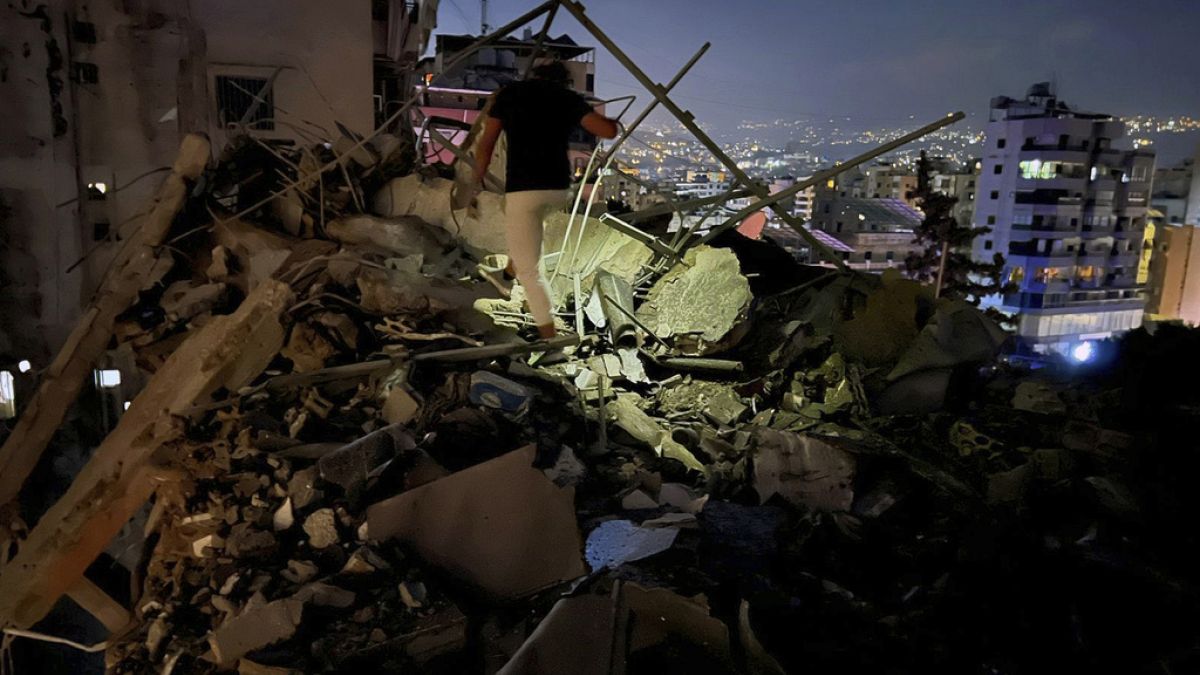Israel conducted a rare strike on Beirut targeting a Hezbollah commander allegedly responsible for a deadly rocket attack on the Israeli-controlled Golan Heights. The strike killed at least one woman and wounded dozens more. The escalating hostilities between Israel and Hezbollah have resulted in increased tensions. The Israeli military spokesperson confirmed that the strike was aimed at the commander named Fouad Shukur, also known as Sayved Mohsen, who was a senior military commander and the head of Hezbollah’s strategic unit. Hezbollah did not immediately confirm the commander’s death, and it remains unclear if he was hit in the attack.
According to the Lebanese public health ministry, the strike in a southern suburb of Beirut resulted in the death of one woman and injured 68 others, some of them seriously. The wounded were rushed to nearby hospitals, and the public was urged to donate blood to assist in treating the casualties. The Lebanese Prime Minister, Najib Mikati, condemned the attack, stating that it was a violation of international law and humanitarian principles. He called on the international community to pressure Israel to cease its aggression and adhere to international resolutions. Iran and Syria also denounced the strike, with Iran’s embassy in Lebanon calling it “sinful and cowardly.”
The ongoing conflict between the IDF and Hezbollah has been marked by near-daily strikes over the past ten months, primarily in the backdrop of the war in Gaza. However, both sides had previously worked to keep the conflict from escalating into a full-scale war. The attack on Beirut marks an escalation in the tensions between Israel and Hezbollah, with the potential to further destabilize the region. The strike on the Lebanese capital signifies a significant shift in the conflict dynamics and raises concerns about the potential for further violence and retaliation.
The Israeli military has accused Hezbollah of being behind the deadly rocket attack that killed 12 youths in the Israeli-controlled Golan Heights over the weekend. The strike on Beirut was carried out in response to this attack, targeting the alleged mastermind behind the incident. Israel claims that Fouad Shukur, also known as Sayved Mohsen, was a key figure in Hezbollah’s military operations and closely associated with the group’s leader, Hassan Nasrallah. The Israeli military stated that the strike was a targeted operation to eliminate a threat to Israeli security and prevent further attacks on its territory.
Hezbollah’s response to the attack on Beirut remains uncertain, as the group has not confirmed the death of the alleged commander. However, the ongoing conflict between Israel and Hezbollah has seen both sides engaging in retaliatory strikes and counterattacks, leading to a cycle of violence and instability in the region. The latest strike on Beirut raises concerns about the potential for further escalation and highlights the volatile nature of the situation. The international community has a crucial role to play in de-escalating tensions and preventing further violence in the region. Diplomatic efforts are needed to address the root causes of the conflict and find a peaceful resolution to the ongoing hostilities between Israel and Hezbollah.











